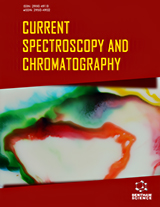Abstract
The production of fatty acid esters (biodiesel) from three non-edible oils i.e Putranjiva roxburghii (putranjiva, a new source), Pongamia glabra (karanja) and Jatropha carcus (jatropha) by acid, base and enzyme (catalyst) methods were compared. Sulphuric acid (1.0% w/w) as acid catalyst gave maximum conversion of jatropha oil (83.51%) than karanja (76.22%) and putranjiva oil (66.03%) at 3 hr. Sodium methoxide (1.5% w/w of total reactant) as base catalyst gave the conversion of 57.45%, 96.30% and 97.03% for oils of jatropha, karanja and putranjiva respectively at 3 min. In enzymatic transesterification jatropha, karanja and putranjiva gave the conversion of 52.0%, 27.4% and 17.3% respectively at 40 0C and 8 hr. The percentage conversion was measured by NMR analysis. It was observed in transesterification reaction that degummed vegetable oils gave better yield of biodiesel than crude vegetable oils. A secondary alcohol also gave higher conversion to biodiesel than methanol due to its higher miscibility in oil. In this article, a review of the patents on different aspects of the comparision of biodiesel production from three non-edible oils by acid, alkali and enzyme methods is presented.
Keywords: Alternative diesel fuel, Biodiesel, Catalyst, Putranjiva oil, Non-edible oil, Transesterification
 5
5















